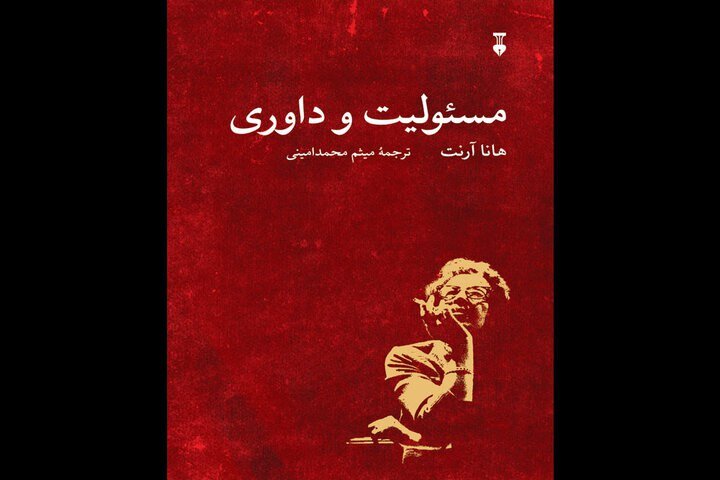Hannah Arendt’s “Responsibility and Judgment” available in Persian

TEHRAN-The Persian translation of “Responsibility and Judgment” written by the German-American historian and philosopher Hannah Arendt has been released in the book market across Iran.
Meysam Mohammad-Amini has translated the book and Now Publishing House has brought it out in 318 pages, Mehr reported.
Originally published in 2003, the book gathers together unpublished writings from the last decade of Arendt’s life, where she addresses fundamental questions and concerns about the nature of evil and the making of moral choices.
At the heart of the book is a profound ethical investigation, “Some Questions of Moral Philosophy,” in which Arendt confronts the inadequacy of traditional moral “truths” as standards to judge what we are capable of doing and examines anew our ability to distinguish good from evil and right from wrong.
We also see how Arendt comes to understand that alongside the radical evil she had addressed in earlier analyses of totalitarianism, there exists a more pernicious evil, independent of political ideology, whose execution is limitless when the perpetrator feels no remorse and can forget his acts as soon as they are committed.
“Responsibility and Judgment” is an indispensable investigation into some of the most troubling and important issues of our time.
Hannah Arendt (1906–1975) was one of the most influential political philosophers of the twentieth century. Born into a German-Jewish family, she was forced to leave Germany in 1933 and lived in Paris for the next eight years, working for a number of Jewish refugee organizations.
In 1941 she immigrated to the United States and soon became part of a lively intellectual circle in New York. She held a number of academic positions at various American universities until her death in 1975.
She is best known for two works that had a major impact both within and outside the academic community. The first, “The Origins of Totalitarianism,” published in 1951, was a study of the Nazi and Stalinist regimes that generated a wide-ranging debate on the nature and historical antecedents of the totalitarian phenomenon.
The second, “The Human Condition,” published in 1958, was an original philosophical study that investigated the fundamental categories of the vita activa (labor, work, action).
In addition to these two important works, Arendt published a number of influential essays on topics such as the nature of revolution, freedom, authority, tradition and the modern age. At the time of her death in 1975, she had completed the first two volumes of her last major philosophical work, “The Life of the Mind,” which examined the three fundamental faculties of the vita contemplativa (thinking, willing, judging).
SS/SAB
